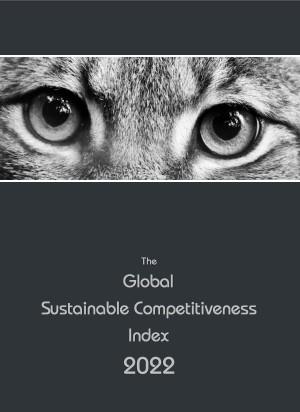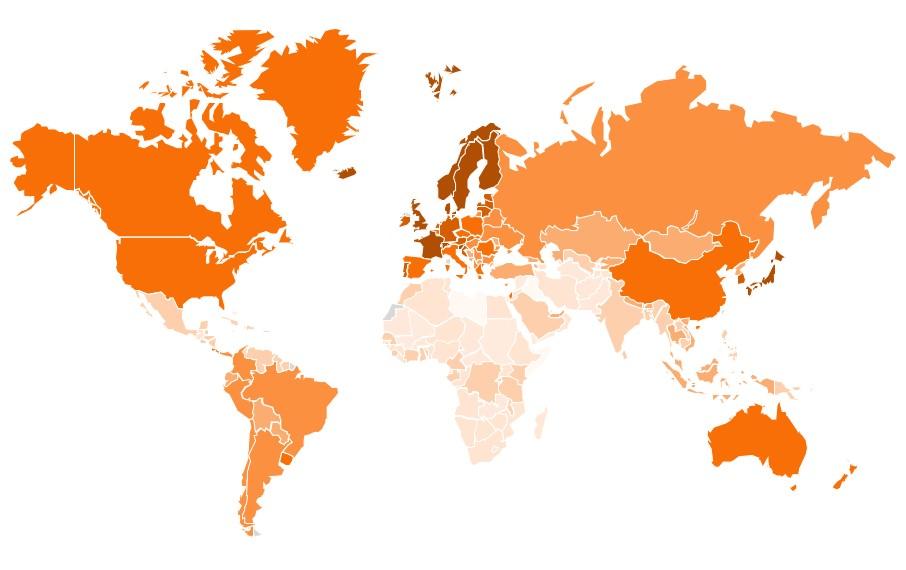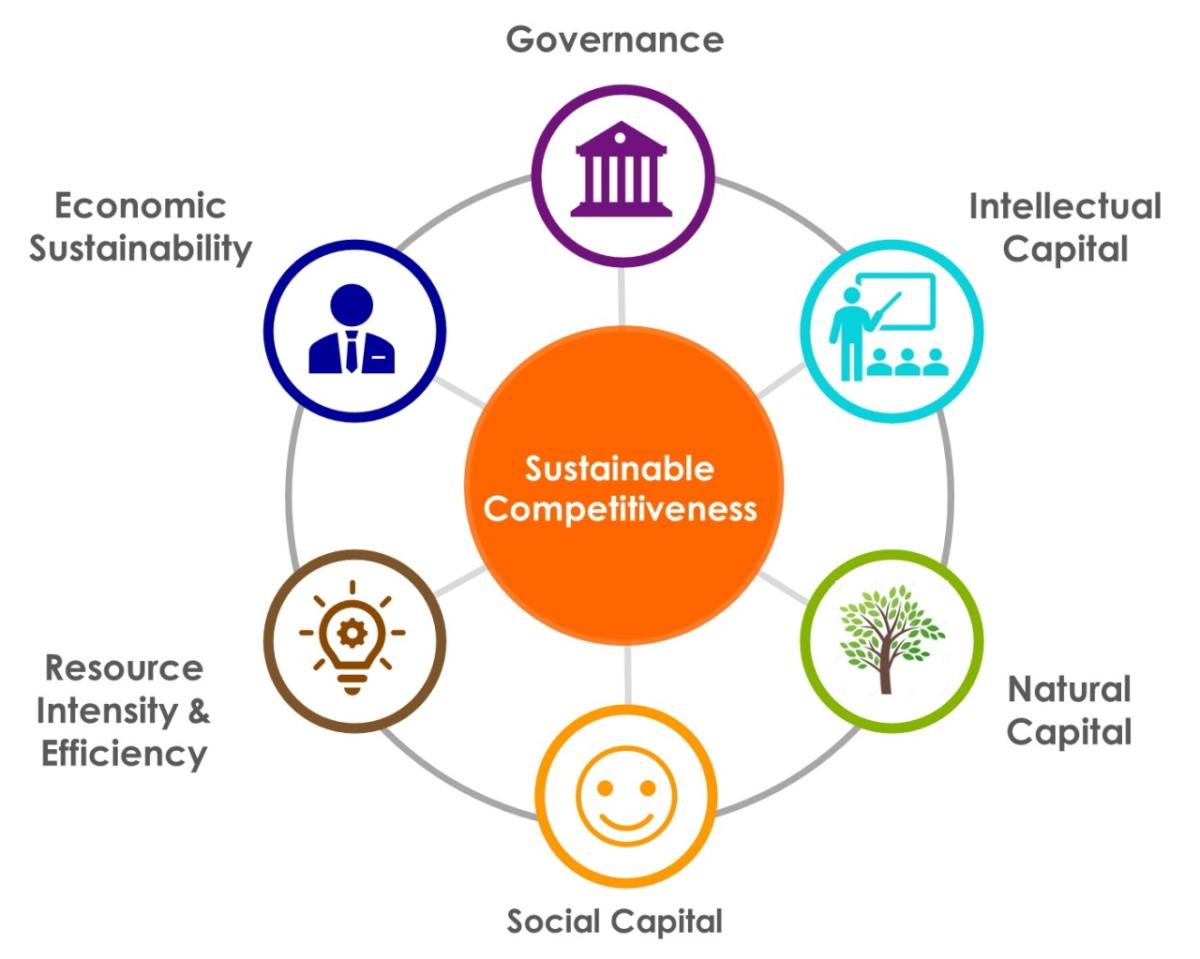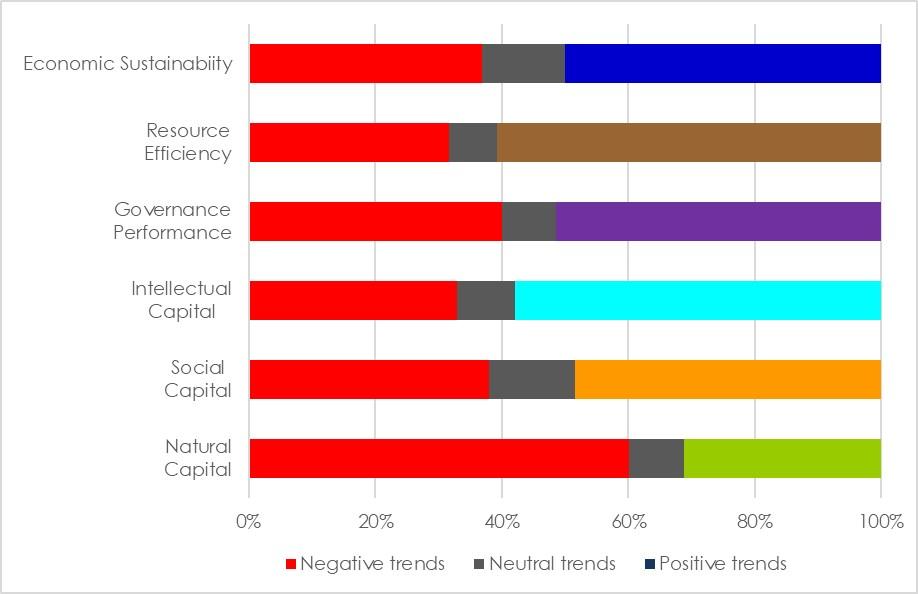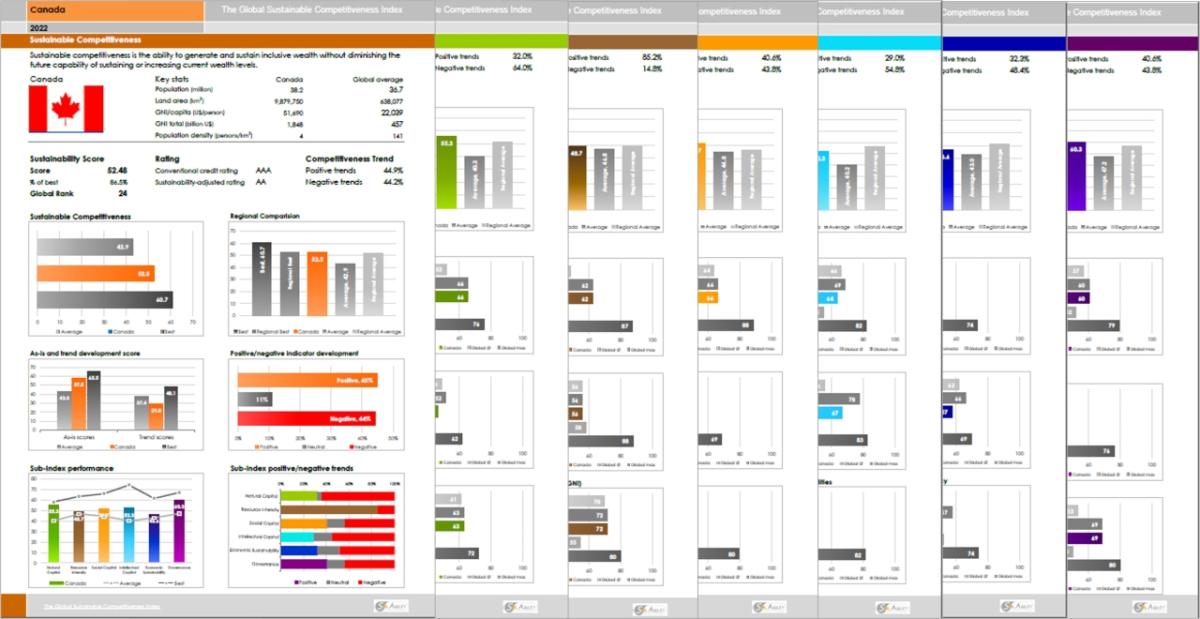ESG Country Ratings: The Global Sustainable Competitiveness Index 2022
Scandinavia dominates the 2022 Sustainable Competitiveness Index
The Global Sustainable Competitiveness Index
December 20, 2022 /3BL Media/ - ESG country rating: the Global Sustainable Competitiveness Index (GSCI) measures sustainable development and green growth since 2012.
The GSCI is based on 189 quantitative indicators, derived from renowned international organisations. The raw data is scored both in absolute terms and in the trends over the recent past to present a comprehensive view of a nation’s status, performance, and future potential. The Indicators are grouped into the six pillars:
- Natural Capital Index
The given natural environment of a country - Resource Efficiency Index
Resource usage - per capita, and per economic output - Social Capital Index
Social cohesion, health, freedom, security, equality - Intellectual Capital & Innovation Index
Education and innovation indicators - Economic & Business Sustainability
Busines frameworks and business sustainability indicators - Governance Performance Index
Infrastructure, resource allocation, corruption, business and fiscal considerations
Key Take-Aways From the 2022 Sustainable Competitiveness Index:
- The 5 Sandinavian Nations – Sweden, Finland, Denmark, Norway and Icland – keep dominating the GSCI; only Switzerland on 3rd comes in between.
- Only two countries in the Top 20 are not European: – Japan on 10, and South Korea (14). New Zealand follows on 26.
- The USA is ranked 30, achieving a good performance in Intellectual Capital, but scoring low in Resource Efficiency and Social Capital – potentially further undermining the global status of the US in the future
- China is ranked 31 – very strong in Intellectual Capital, but low on Natural Capital and scoring below average in Resource Intensity/Efficiency
- the UK ranks 7, France 8, Germany 16
- Brazil is 46th, India 120, and Nigeria 126.
- Some of the least developed nations have a considerable higher GSCI ranking than their GDP would suggest (e.g. Nepal, Bhutan, Bolivia, Suriname, …)
- Asian nations (South Korea, Japan, and China) lead the Intellectual Capital Index – the basis of innovation. However, achieving sustained prosperity is potentially compromised by Natural Capital constraints and increasing resource consumption.
- The Social Capital Index ranking is topped by Northern European (Scandinavian) countries, the result of economic growth combined with a widely accepted social consensus.
Read more, or download the Global Sustainable Competitiveness Report 2022
ESG Country Ratings vs. Sovereign Bond Ratings:
Sovereign bond ratings are heavily influenced by the large rating providers – Moody’s, S&P, and Fitch. The comparison of the conventionally applied sovereign bond ratings and ESG country credit ratings based on the Global Sustainable Competitiveness Index (GSCI) shows:
- ESG-adjusted ratings and conventional ratings show significant differences. Under a sustainability-adjusted credit rating, countries with high reliance on exploitation of natural resources would be rated lower, while some of the lesser developed countries with a healthy fundament (biodiversity, education, governance) would receive higher ratings.
- Sovereign bond ratings do not sufficiently reflect the non-tangible risks and opportunities associated with specific nation-economies
- Sovereign bond ratings show a high correlation to GDP/capita levels. Poor countries are due higher interest rates than rich countries.
- Sovereign bond ratings can in facilitate a negative circularity: bad credit ratings lead to higher cost of capital and debt servicing, which in turn led to bad credit rating.
The comparison of ESG and non-ESG ratings shows distinctive trend: countries whose current wealth is based to a significant part on the exploration of non-renewable resources have a lower rating, (i.e., would have to pay higher interest rates on their debts), in particular the oil-rich nations in the Middle East. Eastern Europe as well as South America (except Chile) would do better under sustainability-adjusted credit ratings and occur lower interest rates. A number of African countries, mainly in sub-Saharan tropical Africa, would also see their credit rating increase.
While there has been significant movement in terms of integrating ESG considerations in the financial World (including the rating agencies), ESG country credit ratings show that there is still a significant gap in integrating ESG risk and opportunities in sovereign bond ratings.
For more detailed information, download the full report here

